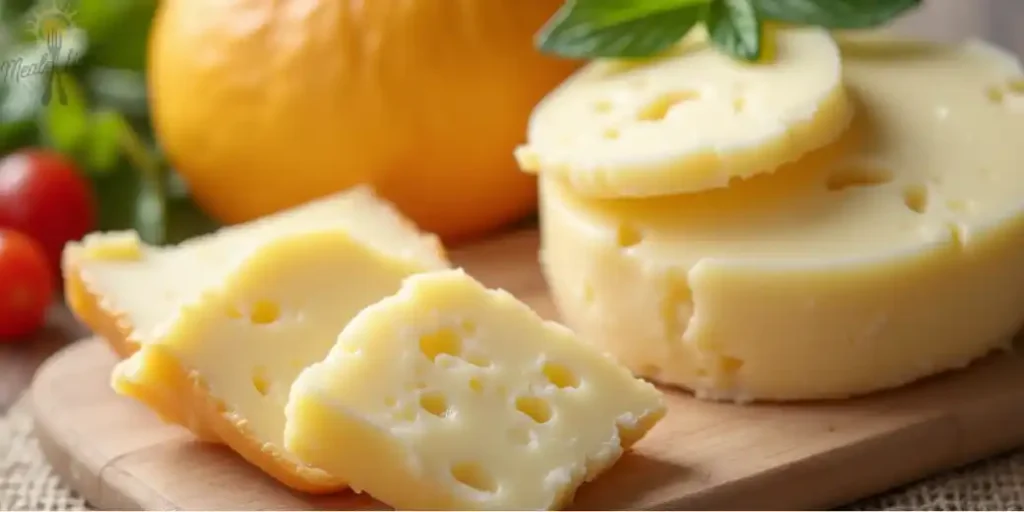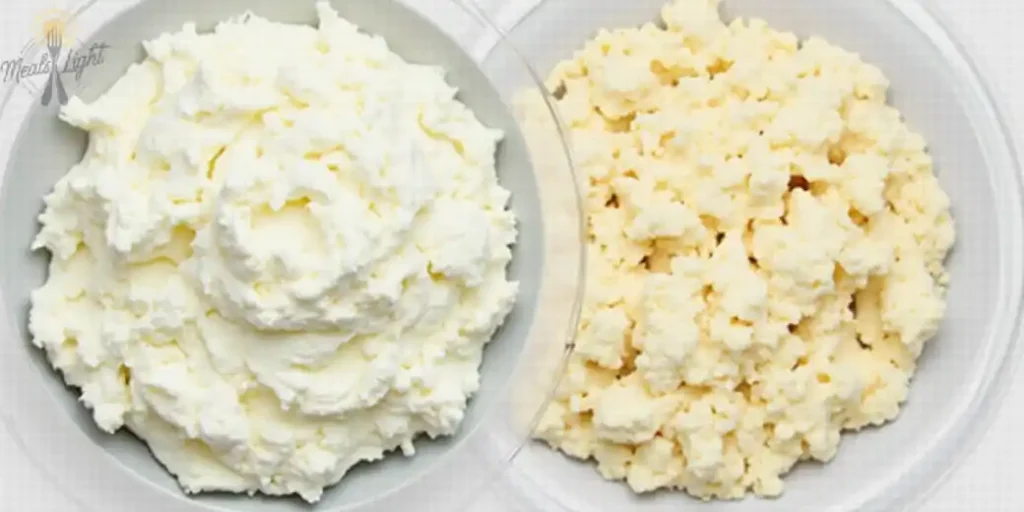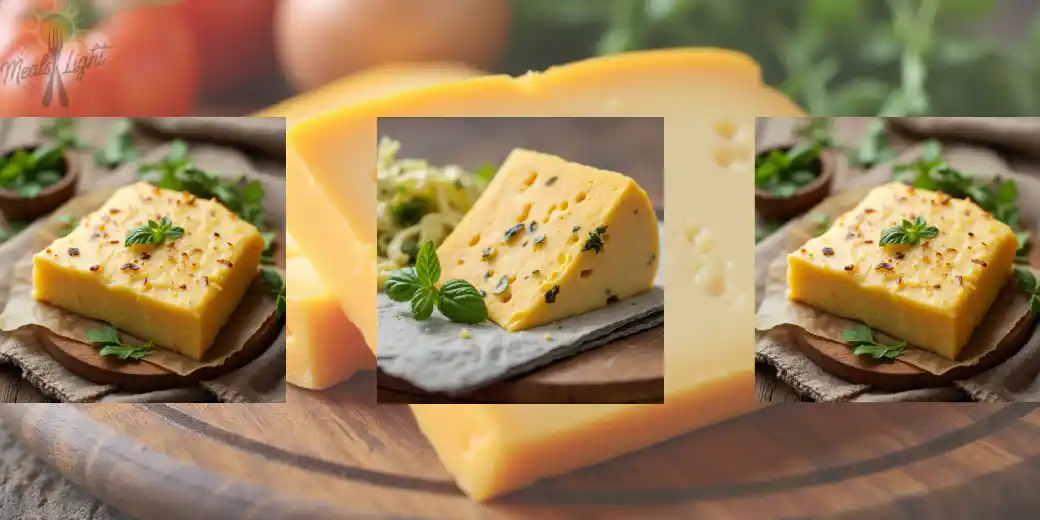Are you ready to dive into the delicious, cheesy world of vegetarian cheese? Whether you’re a dedicated vegetarian, dabbling in meatless Mondays, or just a curious cheese enthusiast, this guide has got you covered. Ever wondered how vegetarian cheese manages to be so creamy and flavorful without using animal rennet? Or maybe you’re just here to uncover which ones melt like a dream on pizza (spoiler: we’ve got the scoop).
But hold up—it’s not just about picking the perfect slice. There’s a whole world of benefits, clever methods, and care tips to explore, and trust me, you don’t want to miss it. From the ethics behind rennet-free cheese to DIY recipes that’ll make you feel like a cheese-making wizard, we’re about to unwrap all the secrets. So grab a snack (maybe some crackers?), and let’s get cheesy!
Key Takeaways:
- Vegetarian Cheese Basics: Vegetarian cheeses avoid animal rennet and use plant-based or microbial alternatives, offering creamy, flavorful options for various tastes. They come in diverse varieties, from soft cheeses like cream cheese and ricotta alternatives to hard cheeses like cheddar and parmesan substitutes.
- Health Benefits: Vegetarian cheeses are often lower in cholesterol and are available in lactose-free options, making them suitable for those with lactose intolerance. Many are made with plant-based milks like almond or soy, offering additional health benefits.
- Ethical and Environmental Impact: Choosing vegetarian cheese supports animal welfare by avoiding animal-derived rennet and contributes to sustainability by reducing carbon footprints and water usage compared to traditional dairy cheese.
- Cooking with Vegetarian Cheese: Vegetarian cheeses melt and cook in similar ways to traditional cheeses, making them perfect for pizza, pasta, lasagna, and even desserts. Experimenting with vegetarian cheeses allows for a range of delicious dishes without compromising on taste or texture.
- Identifying Vegetarian Cheese: To find vegetarian cheese, check labels for terms like “microbial rennet,” “plant-based enzymes,” or certifications such as “Vegetarian Society Approved.” Be aware of hidden animal products like animal-based coloring or gelatin.
- Versatility and Flavor: Vegetarian cheese can closely mimic traditional cheeses, with flavors and textures that satisfy even dedicated cheese lovers. From savory to sweet dishes, vegetarian cheese proves that you don’t have to sacrifice flavor for a vegetarian lifestyle.
Enjoying vegetarian cheese supports a more ethical, sustainable, and health-conscious lifestyle while indulging in delicious, versatile cheeses!
Types of Vegetarian Cheese
The world of vegetarian cheese is as diverse as a cheese platter at a fancy dinner party! From creamy spreads to nutty, aged varieties, there’s a cheese for every mood, recipe, and craving. Let’s explore the delectable categories, shall we?
Soft Cheeses
Soft cheeses are the smooth operators of the cheese world—perfect for spreading, scooping, and savoring.

Cream Cheese Alternatives
Who doesn’t love a good schmear on a bagel? Vegetarian cream cheese alternatives are just as luscious and tangy as the original. They’re made using plant-based enzymes and are often:
- Cashew-based for a nutty undertone.
- Coconut cream-infused for a silky texture.
- Tofu-blended for a protein-packed option.

Ricotta and Mascarpone Options
These fluffy cheeses are the secret weapons of desserts and savory dishes alike. Use vegetarian ricotta for a killer lasagna or mascarpone for a decadent tiramisu.
- Vegetarian ricotta: Light, crumbly, and perfect for stuffing ravioli.
- Mascarpone alternatives: Creamy enough to spread on toast or whip into frosting.
Hard and Semi-Hard Cheeses
These cheeses are the bold, dependable stars of your cheese board. Slice them, grate them, or just snack straight from the block—no judgment here!
Cheddar-Style Cheeses
Say hello to the crowd-pleaser! Vegetarian cheddar is sharp, tangy, and comes in all sorts of varieties:
- Aged cheddar: Perfect for adding a rich kick to mac and cheese.
- Mild cheddar: Great for melting on sandwiches and burgers.
- Smoked cheddar: For those who love a touch of smoky flair.
Parmesan Substitutes
You CAN have your pasta and eat it too—just sprinkle some vegetarian parmesan! It’s savory, nutty, and full of umami goodness. Most brands use microbial rennet, and some even include cashews or nutritional yeast for extra flavor.
Specialty and Flavored Cheeses
Feeling adventurous? Specialty and flavored cheeses are here to jazz up your meals.
Herb-Infused Varieties
Think of these as the spa treatment for your taste buds. These cheeses are packed with herbs like rosemary, garlic, dill, or even edible flowers! Use them to:
- Add a gourmet touch to salads.
- Pair with crusty bread for a picnic.
- Impress your friends at wine-and-cheese night.
Artisan Creations
For the cheese connoisseurs, artisan vegetarian cheeses are a must-try. Handmade with love and creativity, these cheeses can be nut-based, aged, or even marinated. Some favorites include:
- Truffle-infused cheese: Because who doesn’t love a bit of luxury?
- Charcoal-coated cheese: Looks edgy, tastes amazing.
- Fruit-blended cheese: Sweet and savory perfection!
Hungry yet? These types of vegetarian cheese are just the beginning—each one has a story and a flavor to match. So, grab your cheese knives and let the tasting begin!
Ingredients in Vegetarian Cheese
What’s the magic behind vegetarian cheese? Spoiler: it’s not actual magic, but the clever combination of ingredients that make it taste and feel like the real deal! Let’s peek behind the curtain and see what’s inside these cheesy delights.
Rennet-Free Enzymes
Traditional cheeses often rely on animal rennet for the coagulation process (aka the “make-cheese-happen” step). Vegetarian cheese says, “No thanks!” and opts for rennet-free options like:
- Microbial enzymes: Lab-created but totally safe and vegetarian-friendly.
- Plant-based coagulants: Derived from figs, thistles, or even nettles—nature to the rescue!
- Fungal rennet: Sounds funky but works like a charm, giving the same texture as its animal counterpart.
The result? Cheese that’s kind to animals and just as delicious. Win-win!
Plant-Based Milks
You might think of milk as the backbone of cheese, but in vegetarian cheese, the game changes with plant-based options. These lend unique flavors and textures while keeping things dairy-free (for some cheeses) or vegetarian-friendly. Popular choices include:
- Cashew milk: Creamy and buttery, perfect for soft cheeses.
- Coconut milk: Adds richness without overpowering the flavor.
- Almond milk: Light and nutty, great for firmer cheeses.
- Soy milk: Versatile and protein-packed, it works wonders in both soft and hard cheeses.
Plant-based milks also pave the way for lactose-free options—hello, happy tummies!
Additives and Flavor Enhancers
Here’s where things get fun! Vegetarian cheese relies on a few bonus ingredients to nail that cheesy taste and texture. Think of these as the unsung heroes of your favorite slices and spreads:
- Nutritional yeast: The MVP of cheesy flavor. It’s nutty, tangy, and oh-so-good.
- Tapioca starch: Adds that ooey-gooey stretchiness we all love in melted cheese.
- Agar-agar: A plant-based gelling agent that keeps vegan cheeses firm and sliceable.
- Spices and seasonings: Garlic powder, paprika, black pepper—these flavor bombs make sure your cheese never tastes boring.
Together, these ingredients create cheeses so tasty and versatile, even the most dedicated dairy lovers will be impressed. It’s like a science experiment, but way more delicious!
Benefits of Vegetarian Cheese
Why switch to vegetarian cheese? Whether you’re all about clean eating, saving the planet, or just looking for a healthier alternative to traditional cheese, vegetarian cheese brings a lot to the table (literally). Let’s break down the benefits that make it such a winning choice.
Health Advantages
Vegetarian cheese isn’t just tasty; it’s packed with perks for your health, making it an excellent option for mindful eaters.
Lower Cholesterol
Unlike traditional cheese, which can be high in saturated fats, many vegetarian cheeses are made with plant-based ingredients that naturally contain less cholesterol. Here’s the kicker:
- Eating vegetarian cheese can support heart health and lower bad cholesterol levels.
- It’s perfect for anyone keeping an eye on their cardiovascular well-being but refusing to give up their cheesy indulgence.
So, yes—you can have your cheese and eat it too, guilt-free!
Lactose-Free Options
If your stomach does a backflip at the mere mention of dairy, vegetarian cheese has your back. Many options are lactose-free, especially those made with plant-based milks like almond, cashew, or soy.
- Lactose-free vegetarian cheese means no bloating, no discomfort—just creamy, cheesy goodness.
- It’s a game-changer for anyone with lactose intolerance who thought they’d have to live a cheese-less life.
Say goodbye to dairy drama and hello to your new favorite cheeses!
Sustainability and Ethics
Vegetarian cheese doesn’t just taste good—it feels good, too, because every bite supports a kinder, greener world.
Animal Welfare
Traditional cheese production often relies on animal-derived rennet, which involves less-than-ideal practices for animals. Vegetarian cheese skips the cruelty, opting for plant-based or microbial enzymes instead.
- Choosing vegetarian cheese means taking a stand for ethical eating without sacrificing flavor.
- It’s an easy way to align your food choices with your values while still enjoying the cheesier things in life.
Every slice and shred helps create a more compassionate food system.
Reduced Carbon Footprint
Did you know that vegetarian cheese production typically requires fewer resources than traditional dairy cheese?
- Fewer greenhouse gas emissions and less water usage make vegetarian cheese a more eco-friendly option.
- Plant-based and vegetarian alternatives help combat climate change while keeping your plate delicious.
In short, choosing vegetarian cheese is like giving Mother Earth a big cheesy hug.
Whether you’re here for the health perks, the planet-friendly impact, or simply the taste, vegetarian cheese proves that you can have it all. So go ahead, grab that slice of veggie pizza or sprinkle some lactose-free Parmesan on your pasta—every bite is a little win for you and the world!
How to Identify Vegetarian Cheese
Shopping for vegetarian cheese can feel a bit like a treasure hunt—only the prize is melty, savory, and delicious! But how do you ensure the cheese you’re grabbing is truly vegetarian? Don’t worry; I’ve got the cheesy guide you need to make the right pick every time.
Reading Labels
The first clue lies in the fine print. Labels are your best friends when it comes to spotting vegetarian cheese. Look out for these telltale signs:
- Rennet-free mention: If the cheese is labeled as “made with microbial rennet” or “vegetarian rennet,” you’re good to go.
- Ingredient list clarity: Scan the ingredients for anything suspiciously animal-derived.
- Plant-based enzymes: Words like “plant enzymes” or “fungal enzymes” are your green light.
Pro tip: When in doubt, a quick Google search of the brand can reveal more about their vegetarian-friendly status.
Certifications to Look For
Why stop at reading labels when you can go straight for the official stamps of approval? Certifications make it even easier to identify vegetarian cheese. Here are the ones to look for:
- Vegetarian Society Approved: This trusted logo guarantees the product is 100% vegetarian.
- V-Label: An international symbol that marks vegetarian (and sometimes vegan) products.
- Kosher Certification: Kosher cheeses often avoid animal rennet, but double-check to be sure.
Seeing one of these certifications is like finding a “Cheese Approved” badge of honor.
Avoiding Hidden Animal Products
Even with clear labels, some animal-derived ingredients can sneak into cheeses without much fanfare. Here’s what to watch out for:
- Animal-based coloring: Some cheeses use annatto or beta-carotene for coloring, which are plant-derived, but others rely on animal sources—double-check if you’re unsure.
- Hidden enzymes: If the label just says “enzymes” with no further clarification, it’s worth investigating.
- Gelatin or other binders: Rare in cheese but still something to keep an eye out for.
By staying vigilant, you can ensure that every slice, cube, or sprinkle is truly vegetarian-friendly.
Identifying vegetarian cheese isn’t rocket science—it’s more like being a cheesy detective! With these tips, you’ll shop with confidence and enjoy your vegetarian lifestyle without missing out on your favorite indulgence.
Cooking with Vegetarian Cheese
Vegetarian cheese isn’t just for crackers and charcuterie boards (though we fully support those choices). When it comes to cooking, these cheeses are absolute game-changers! From gooey melts to savory snacks, let’s explore how vegetarian cheese can take your dishes to the next level.
Melting and Texture
Not all cheeses melt the same way, and vegetarian cheese is no exception. But when you find the right one, oh boy—it’s melty magic!
- Soft and creamy varieties: Perfect for spreading on toast or blending into sauces.
- Cheddar-style vegetarian cheeses: These shine when melted into gooey goodness for grilled cheese or nachos.
- Parmesan substitutes: They don’t melt, but they add a savory punch when sprinkled over hot dishes.
Pro tip: If your vegetarian cheese isn’t melting as you’d like, try grating it finely and using low, even heat. Patience is key!
Recipes for Every Occasion
Whether you’re hosting a dinner party or just whipping up a quick snack, vegetarian cheese is here to save the day.
Pizza and Pasta Dishes
Nothing screams comfort food like a cheesy pizza or a plate of pasta smothered in sauce. Vegetarian cheese makes these classics even better:
- Homemade pizza: Sprinkle shredded mozzarella-style vegetarian cheese for that perfect stretch. Add some Parmesan-style shavings for extra flair.
- Mac and cheese: Creamy, cheesy, and oh-so-delicious with a sharp cheddar-style vegetarian cheese. Bonus points for breadcrumbs on top!
- Lasagna: Layer vegetarian ricotta with marinara and pasta sheets for a dish that’s indulgent and rennet-free.
Desserts and Snacks
Who said cheese can’t have a sweet side? Vegetarian cheese works wonders in desserts and snacks too:
- Cheesecake: Use vegetarian cream cheese for a rich, velvety texture. Garnish with fresh berries for a delightful treat.
- Cheese-stuffed jalapeños: A spicy snack stuffed with melty vegetarian cheese goodness.
- Dips and spreads: Blend soft cheeses with herbs or fruit for party-ready appetizers.
With vegetarian cheese in your kitchen, there’s no limit to what you can create. Whether it’s a gooey pizza or a decadent dessert, these cheeses prove that rennet-free doesn’t mean flavor-free. Get ready to cook up something cheesy and delicious!
FAQs
What is the difference between vegetarian and vegan cheese?
Vegetarian cheese is made without animal rennet but may still include dairy, while vegan cheese contains no animal products at all and is entirely plant-based. Vegan cheese caters to both vegetarians and vegans, whereas vegetarian cheese is not suitable for vegans. The production methods and ingredients differ, leading to variations in taste and texture.
Can vegetarian cheese taste like traditional cheese?
Yes, many vegetarian cheeses closely mimic the taste and texture of traditional cheese, especially those made with dairy. Advances in ingredients and production techniques, such as using microbial enzymes, have helped create vegetarian options that satisfy even cheese lovers. Some plant-based vegetarian cheeses also offer surprisingly authentic flavors.
Is all cheese without rennet vegetarian?
Not necessarily. While cheese without animal rennet avoids one non-vegetarian ingredient, other factors, such as added animal-derived flavorings or binders, could make it non-vegetarian. Always check the label or certification to ensure it’s truly vegetarian.
Are there any nutritional disadvantages to vegetarian cheese?
Some vegetarian cheeses, particularly plant-based ones, may lack the protein or calcium levels found in traditional dairy cheese. Additionally, certain processed varieties might contain higher levels of sodium or fats. Choosing fortified or minimally processed vegetarian cheeses can help mitigate these concerns.
Conclusion
Vegetarian cheese proves that you don’t have to compromise on flavor, texture, or versatility to enjoy a kinder, more sustainable lifestyle. Whether you’re savoring a creamy ricotta alternative, sprinkling Parmesan-style cheese on your pasta, or experimenting with artisan varieties, vegetarian cheese opens up a world of delicious possibilities.
We’ve explored the benefits, uncovered the best ways to identify vegetarian-friendly options, and even dived into mouthwatering recipes. With so many choices and creative ways to enjoy them, vegetarian cheese is a win for your taste buds, your health, and the planet.
So go ahead, grab your favorite vegetarian cheese, and indulge in the cheesy goodness without a second thought. Whether you’re melting it, spreading it, or savoring it straight from the fridge, every bite is a step toward a more conscious and delicious lifestyle. Happy cheese adventures, and may your days always be as delightful as a perfect cheese pull!


1 thought on “The Complete Guide to Vegetarian Cheese: Everything You Need to Know”